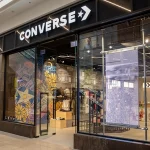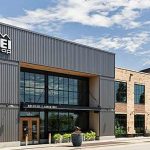Asics America and its Japanese parent Asics Corp. was charged with deliberately withholding promised inventory and marketing support from 13 retail stores owned by a key U.S. licensee, imperiling the licensee's success, according to a lawsuit filed today in a California court in Los Angeles County. Investors in the U.S. licensee who brought the suit allege that Asics tried to drive the licensee out of business in an effort to acquire the outlets on the cheap.
In June, Asics America announced that it had terminated its retail operating agreement with Windsor Financial Group LLC. The agreement, in place since May 2012, was terminated following undisclosed “material breaches” of that agreement by Windsor. Asics America said it is anticipated that Windsor may likely close 13 Asics retail stores across the U.S. in response to termination of the agreement, and all have since closed.
The complaint, which accuses the Japanese sportswear company of fraudulent and negligent misrepresentation and of breach of oral agreement and the implied covenant of good faith and fair dealing, was filed by financial backers of Windsor Financial Group LLC, including Los Angeles business manager Mickey Segal.
A May 2013 agreement with Asics gave Windsor the exclusive rights to develop, open and operate Asics-branded retail stores in the U.S., Canada and Puerto Rico for a 20-year period, according to the lawsuit. Windsor had no choice but to shut all 13 of its stores as a result of Asics' bad faith practices, according to the lawsuit, with the flagship outlet in Times Square closing this week.
“Asics's ill intent is evidenced by its complete refusal to honor its many promises to Windsor and plaintiffs-promises that were critical to Windsor's success,” the lawsuit states.
Windsor had a strong start. In 2014, Asics America then-CEO Kevin Wulff attributed a 15 percent increase in annual sales to the opening of retail stores by Windsor, allowing North American revenues to surpass those from Japan for the first time in the company's history.
The flagship Times Square outlet opened with fanfare in October 2014 to coincide with the New York City Marathon, which Asics America has sponsored for many years. The 5,000-square-foot store, which includes a refurbished 1960s New York City subway car that had been found abandoned in the Mojave Desert, broke $1 million in sales in its first 30 days.
Yet after Windsor invested millions of dollars establishing the flagship store and branches in Boston, Chicago, Newport Beach, and other major cities, Asics intentionally limited Windsor's access to products such as the popular Asics Onitsuka Tiger, leaving it unable to compete with local rivals that carried those styles, the lawsuit alleges.
Asics also failed to live up to promises to develop new merchandise beyond running shoes, leaving Windsor with large 3,000-square-foot stores and not enough products to stock them, the complaint alleges. Windsor estimates that its leasing costs were double what they might have been had they not counted on an influx of Asics-branded merchandise promised by the sportswear company, including soccer, basketball and baseball lines, tennis wear, golf wear and women's, men's and children's attire.
The lawsuit contends that Asics also neglected to follow through on its promise to launch a broad advertising, marketing and promotional campaign to catapult the brand into the global lifestyle market to become more competitive with rivals such as Nike and Skechers.
Together, these broken promises caused a cash flow crunch for Windsor, the suit continues. In February, Asics America served Windsor a Notice of Breach, even after its CEO had assured the licensee of the company's continued support, court papers say.
As an example of the spirit of cooperation, Asics America the previous month had asked Windsor for help in completing its quarterly audit. Asics America's chief financial officer directed Windsor to send a check for nearly $1 million immediately before the last day of its auditors' field work evidencing payment of Windsor's purported outstanding balance and assuring Windsor in an email from his personal account that the check would not be cashed until a later date, according to court documents. Windsor provided the requested check before the audit concluded.
Asics America also granted Windsor time to cure its breach and agreed on an inventory reduction program if the licensee secured additional financing. But just days before that $12 million financing was to close in June, Asics terminated Windsor's agreement.
“Asics wrongfully terminated the Master Retail Agreement with malice and intent to destroy Windsor so Asics could capture Windsor's network and assets at a fire sale price,” states the lawsuit.















